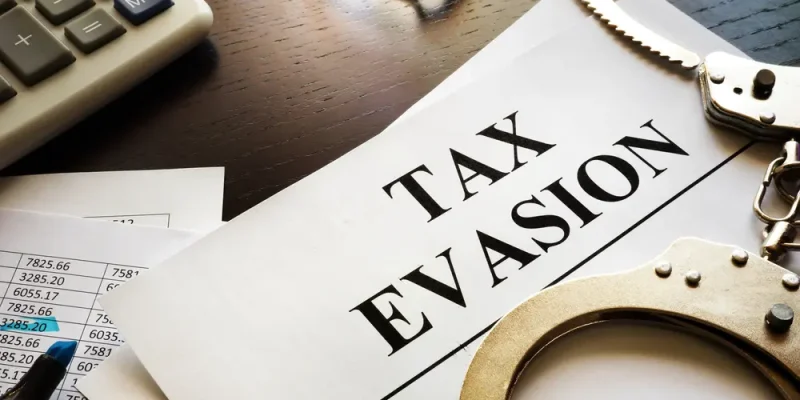Tax Fraud UK Penalties: 10 Unbelievable Facts You Need to Be Aware Of

Tax fraud is a serious crime in the UK, with severe penalties that can have life-changing consequences. Many individuals fail to understand the gravity of tax fraud and its repercussions. The UK tax system is carefully regulated, and any attempt to evade taxes is met with strict enforcement actions. Whether through deliberate underreporting of income, failing to declare earnings, or falsifying financial documents, the penalties for tax fraud are severe. In this article, we’ll delve into 10 unbelievable facts about tax fraud UK penalties that everyone should be aware of.
Tax Fraud UK Penalties Can Lead to Jail Time
One of the most shocking consequences of committing tax fraud in the UK is the potential for jail time. Under UK law, tax fraud is considered a criminal offence, and offenders can face imprisonment. The length of time in jail can vary depending on the severity of the fraud committed. For example, if the fraud involves a substantial amount of money, the prison sentence can be lengthy—up to 10 years in some extreme cases. Individuals convicted of tax fraud may also face additional fines or asset seizures, making the penalties even more severe.
Tax Fraud UK Penalties Can Include Fines Up to 100% of the Tax Due
In addition to criminal prosecution, individuals found guilty of tax fraud can face hefty fines. The UK’s tax authorities, Her Majesty’s Revenue and Customs (HMRC), have the power to issue fines up to 100% of the unpaid tax. This means that not only will you owe the amount of tax you attempted to evade, but you will also be penalised for trying to defraud the system. Depending on the circumstances, HMRC may even impose higher fines or additional penalties, pushing the total amount due much higher.
Tax Fraud UK Penalties Lead to a Permanent Criminal Record
A criminal conviction for tax fraud will result in a permanent criminal record. This can have long-term consequences for the individual, affecting their ability to find employment, secure loans, or even travel internationally. A criminal record can be a significant barrier, especially for professionals who rely on a clean record for their careers. Convictions for tax fraud can also lead to a loss of professional qualifications in some fields, making rehabilitation more challenging.
Tax Fraud UK Penalties Can Involve Asset Seizures
In some cases, HMRC may take action to seize your assets in an effort to recover the unpaid taxes. This can include bank accounts, property, cars, or any other assets that could be sold to settle the debt. If an individual is found guilty of tax fraud, HMRC has the authority to confiscate assets to cover the unpaid tax bill and penalties. In some cases, assets can be seized even before the court trial if HMRC suspects that the individual may try to hide their assets to avoid paying the tax.
Tax Fraud Investigations Can Last for Years
It’s important to understand that tax fraud investigations are not quick processes. HMRC’s investigators are thorough and will often spend years reviewing records and tracking down financial evidence to ensure that the fraud is uncovered. Even after an investigation begins, it can take years for the case to be resolved. This means that individuals suspected of tax fraud may be under investigation for extended periods, potentially affecting their personal lives and finances while they await resolution.
The Penalties Increase with the Amount of Fraud
The severity of the penalty for tax fraud depends largely on the amount of money involved in the fraud. Smaller amounts may result in lower penalties, such as fines and reduced sentences. However, larger amounts of tax evaded or fraudulent claims will result in much steeper penalties. For example, individuals found to have evaded hundreds of thousands of pounds in taxes can face significantly higher fines, longer prison sentences, and even asset forfeiture. The seriousness of the crime is directly related to the financial value of the fraud.
Tax Fraud Can Be Detected Through Whistleblowers
One of the surprising ways tax fraud is uncovered is through whistleblowers. HMRC often receives tips from individuals who know about fraudulent activities. If someone suspects that an individual or company is evading taxes, they can report the information to HMRC anonymously. In some cases, whistleblowers are even rewarded for providing valuable information that leads to a successful investigation and prosecution. This highlights the importance of always adhering to tax laws, as you never know who might report fraudulent activity.
Fraudulent Claims for Tax Reliefs Are Notable Targets
Fraudulent claims for tax reliefs, such as false expenses or incorrect deductions, are a major target for HMRC. Tax reliefs are often claimed by individuals or businesses to reduce their tax liabilities, and falsifying such claims is a common form of tax fraud. Examples include inflating business expenses, misreporting income, or claiming tax relief for non-existent charities. HMRC has special teams dedicated to identifying fraudulent claims for tax relief, and those found guilty of these activities face severe penalties, including substantial fines and potential jail time.
Offshore Tax Fraud Is a Major Focus for HMRC
Offshore tax fraud is a significant issue for HMRC, as it involves attempting to hide money or assets in foreign countries to evade UK tax obligations. HMRC has made it a priority to crack down on individuals who use offshore accounts and shell companies to conceal income or assets. In recent years, there has been an increasing number of high-profile investigations into offshore tax fraud. Those involved in this type of fraud can face hefty fines, significant jail sentences, and asset seizures. With global financial regulations becoming stricter, evading taxes through offshore methods is becoming much riskier.
There Are Programs to Help People Voluntarily Disclose Tax Fraud
While the penalties for tax fraud can be severe, the UK tax system does allow for individuals to voluntarily disclose any fraud they have committed. The HMRC’s “Disclosure Facility” allows people to come forward and admit their tax fraud in exchange for reduced penalties. By voluntarily disclosing the fraud, individuals may receive a reduction in their fines and may avoid jail time. However, it’s crucial that this disclosure is made as soon as possible, as waiting until the authorities uncover the fraud will result in more severe penalties.
Conclusion
Tax fraud UK penalties are severe and can have long-lasting consequences, from hefty fines to prison sentences and asset seizures. The UK government, through HMRC, is committed to tackling tax fraud with an extensive investigative process. Whether you’re a business owner or an individual, it’s crucial to understand the penalties associated with tax fraud. The best course of action is to ensure full compliance with tax laws to avoid the risks of penalties and criminal charges. If you suspect any discrepancies in your tax filings, voluntarily disclosing them to HMRC may help reduce the penalties. The consequences of evading taxes are too significant to ignore, making it essential for everyone to stay informed and avoid the pitfalls of tax fraud.
FAQs
1. What are the most common tax fraud UK penalties?
Tax fraud UK penalties can include prison sentences, heavy fines, asset seizures, and permanent criminal records, depending on the severity of the fraud.
2. Can tax fraud UK penalties be reduced if I voluntarily disclose?
Yes, HMRC offers the opportunity to reduce penalties for tax fraud UK penalties if you voluntarily disclose the fraud before it’s detected.
3. How long can a tax fraud UK penalties investigation last?
Investigations into tax fraud UK penalties can last from several months to several years, depending on the complexity and scale of the fraud.
4. What type of fraud leads to tax fraud UK penalties?
Tax fraud UK penalties apply to a variety of fraudulent actions, including underreporting income, claiming false expenses, and evading taxes through offshore accounts.
5. What should I do if I’m at risk of tax fraud UK penalties?
If you’re at risk of tax fraud UK penalties, seek professional advice immediately. Voluntary disclosure to HMRC could reduce the severity of penalties.
Also read: Crewlogout Secrets Revealed: 5 Ways to Maximize Crew Efficiency











